Four student ideas that could change the world
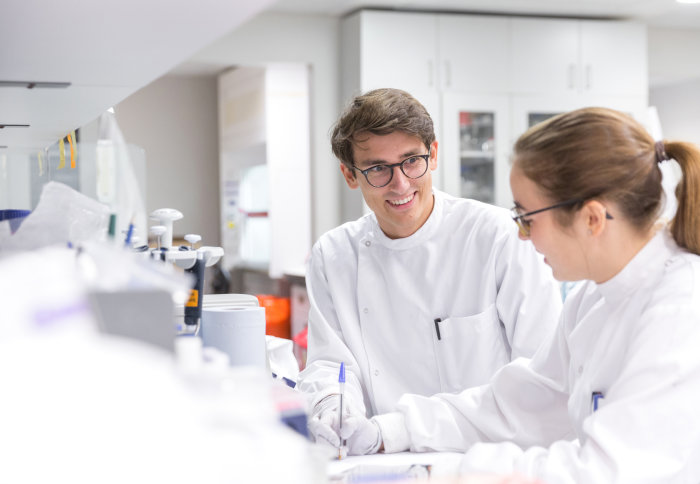
Georg Wachter and Martina Oliver Huidobro from team MiChip
Four teams of undergraduate students are spending their summer developing solutions to some of society’s most pressing challenges.
The Faculty of Natural Sciences Make-A-Difference competition (FoNS-MAD) challenges undergraduate students to develop low-cost technology with a positive social impact.
From tackling ocean plastic to fighting fatbergs, this year’s participants are spending eight weeks turning their ideas into proof-of-concept prototypes.
Each team has been given lab-space, funding, and guidance from academic mentors as they compete for prizes of up to £6000.
The teams will pitch their ideas at the final stage of the competition on 24 October 2018.
Cleaning up the ocean
Team CleanSea - which includes Dario Mongiardi (Chemistry), Andreas Polydorides (Bioengineering), Jedidiah Cheung (Life Sciences) and Riccardo Rocco Pierre (Chemistry) – are developing way of stopping microplastics from entering oceans and rivers.
 Microplastics are tiny fragments of plastic that result from broken-down plastic waste, synthetic fibres and beads found in personal hygiene products. They can be swallowed by marine life, contaminating the entire food chain. There are concerns that microplastics may be harmful to human health.
Microplastics are tiny fragments of plastic that result from broken-down plastic waste, synthetic fibres and beads found in personal hygiene products. They can be swallowed by marine life, contaminating the entire food chain. There are concerns that microplastics may be harmful to human health.
The team are creating a compound that could be introduced to filtration systems at wastewater treatment plants to attract and trap microplastics and prevent them from entering the environment.
Jedidiah said: “Microplastics are accumulating in our oceans at an alarming rate, disrupting ecosystems and entering the fish we eat. We don’t yet know what threat they might pose to human health.
“We want to tackle the problem at its source, and prevent them from entering the oceans in the first place.”
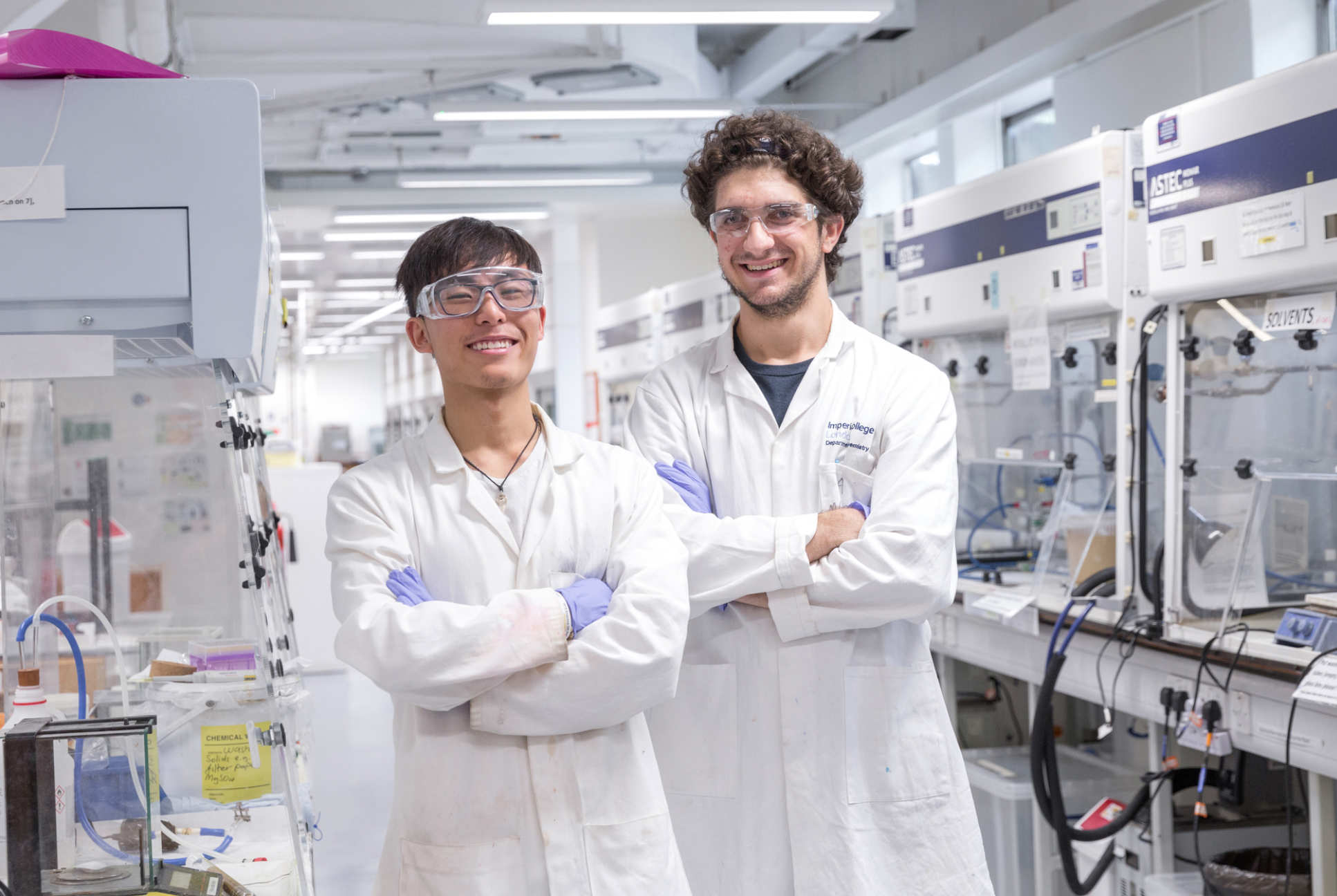
New use for waste feathers
Team FeaFOG, made up of Yuxin Zhang (Life Sciences), Ming Toh (Life Sciences) and Brady Han (Materials) are creating an innovate sponge that would help people get rid of kitchen oil and prevent it being poured down the drain.
 They are creating the material made from hydrophobic keratin proteins found in waste poultry feathers. The material would selectively absorb kitchen oil and grease but not water. This means that oil from dirty dishes, cooking utensils, and pots and pans could be removed easily without being washed down the drain and into the sewers.
They are creating the material made from hydrophobic keratin proteins found in waste poultry feathers. The material would selectively absorb kitchen oil and grease but not water. This means that oil from dirty dishes, cooking utensils, and pots and pans could be removed easily without being washed down the drain and into the sewers.
The oil collected in the sponge could potentially be extracted and recycled as fuel, the team say.
Ming said: “We frequently see reports of London sewers becoming blocked by ‘fatbergs’. Cooking oil and kitchen grease being poured down the sink is contributing to this problem. We wanted to find an easy way to reduce the amount of oil going down the drain, something people could easily use in their own homes to tackle the problem.”
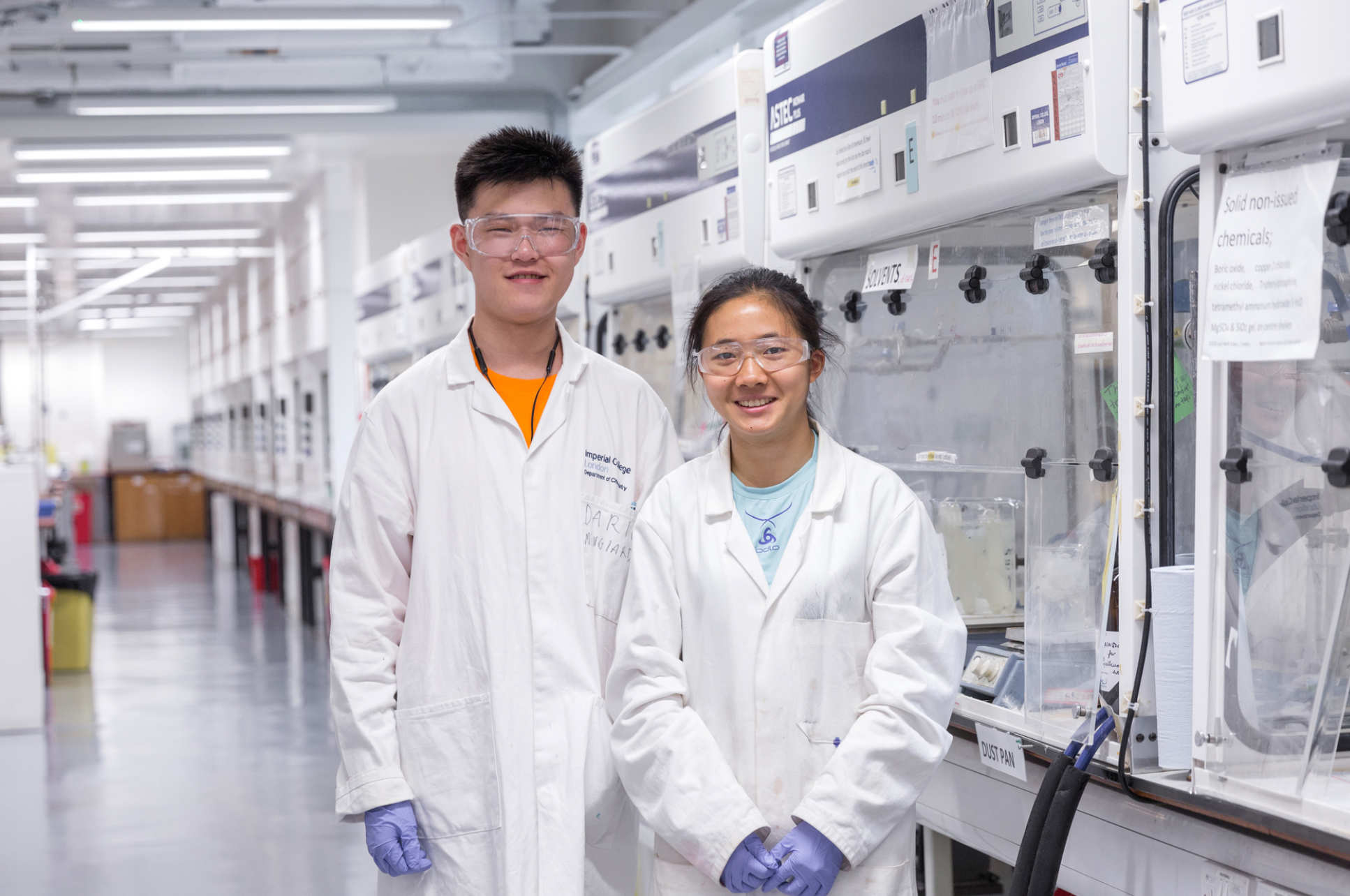
Smart cane
Team Batcane – Leo Leung (Physics), Valerie Lau (Physics), Ryan Ho (Design Engineering) and Louie Hext (Physics), are developing a ‘smart’ cane for people with visual impairments that could help them navigate their surroundings independently.
 The cane uses ultrasound sensors to detect obstacles and, unlike existing technology, uses a ball robot to guide the user gently around them.
The cane uses ultrasound sensors to detect obstacles and, unlike existing technology, uses a ball robot to guide the user gently around them.
Valerie said: “Travelling around an unfamiliar place is one of the biggest challenges for people with visual impairment. Traditional canes can help detect obstacles, but are unreliable for anything above knee-level. We want to create a low-cost, user-friendly device to provide gentle and efficient assistance.
“The cane can distinguish between stationary obstacles and transient ones - for example, a person passing in front of you. It will guide the user by moving gently in the direction they need to go.”
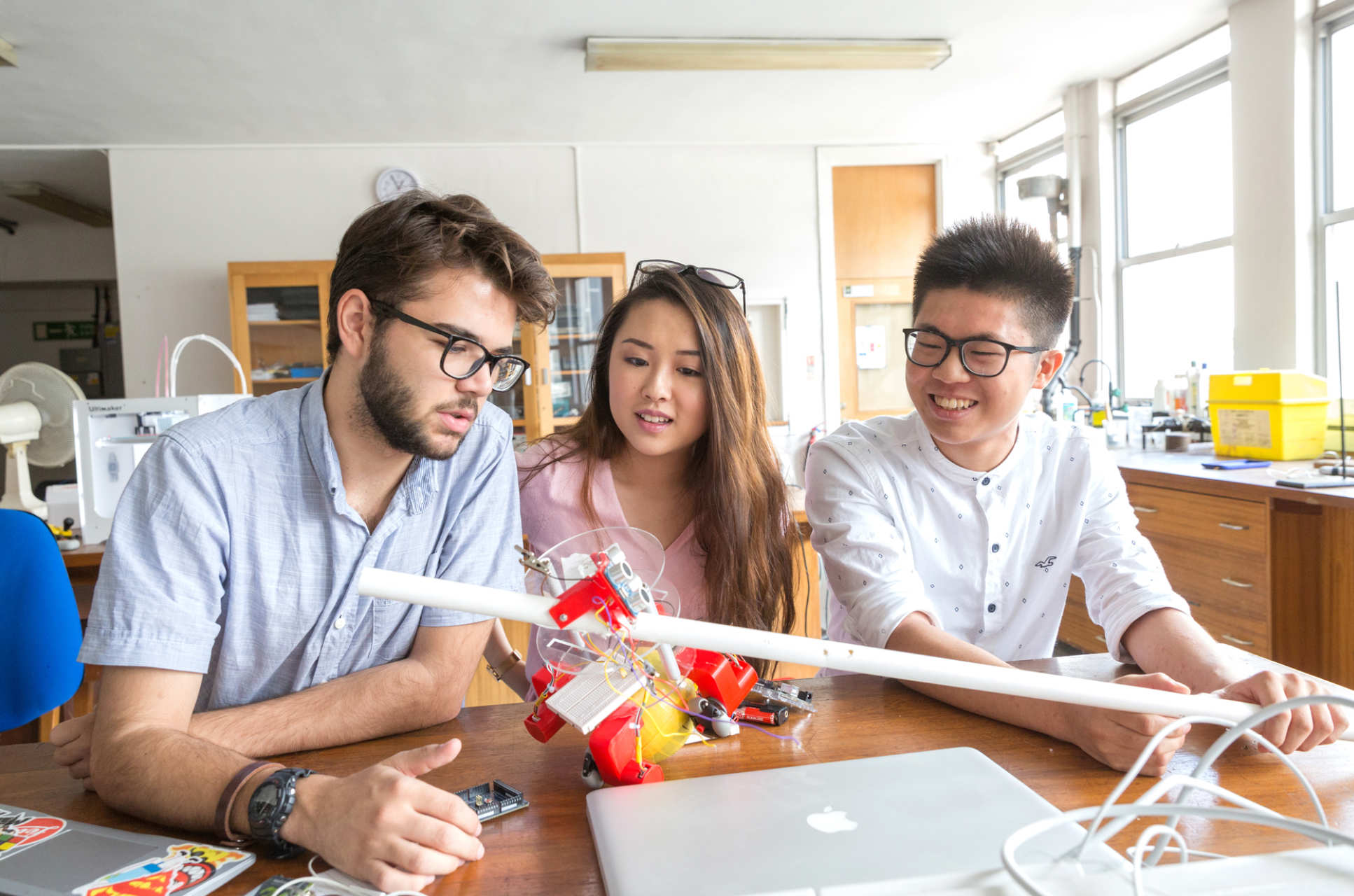
Detecting disease
Team MiCHIP, which includes Georg Wachter (Life Sciences), Martina Oliver Huidobro (Life Sciences), and Alejandro Marquiegui (Life Sciences), are working to develop a low-cost, portable test which could detect a range of diseases including Alzheimer’s using less invasive procedures.
 The test would work by detecting small molecules called microRNA in the blood. micoRNA are becoming increasingly recognised as powerful biomarkers, but current tests require expensive laboratory equipment and require large amounts of blood to evaluate. Taking large amounts of blood can be a problem for children, as well as people who are frail, elderly, or anaemic, the team explain.
The test would work by detecting small molecules called microRNA in the blood. micoRNA are becoming increasingly recognised as powerful biomarkers, but current tests require expensive laboratory equipment and require large amounts of blood to evaluate. Taking large amounts of blood can be a problem for children, as well as people who are frail, elderly, or anaemic, the team explain.
Martina said: “We are hoping to develop an inexpensive test that could be used in GP surgeries and hospitals to test for a range of diseases at the bedside quickly and simply.”
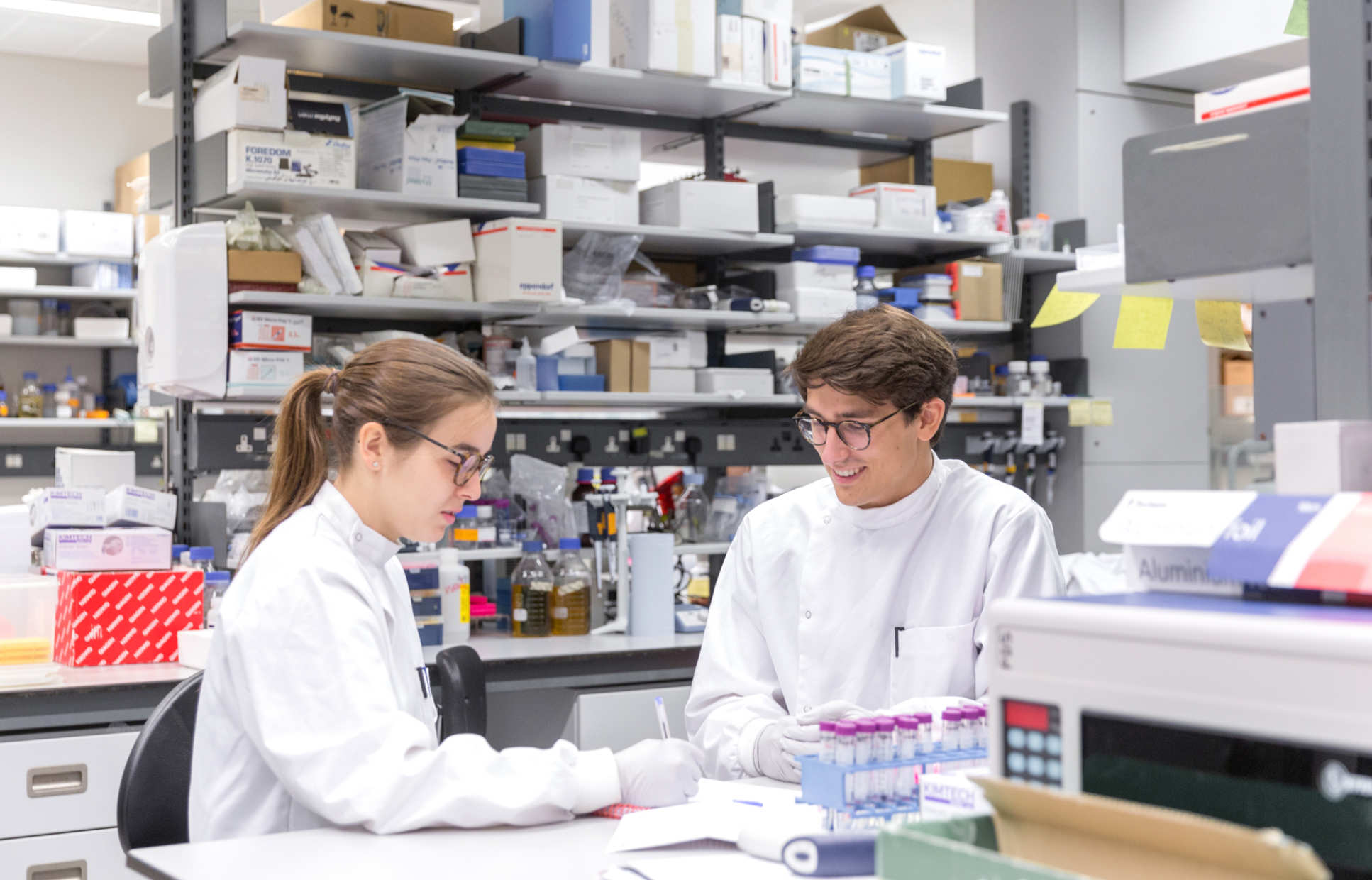
Article text (excluding photos or graphics) © Imperial College London.
Photos and graphics subject to third party copyright used with permission or © Imperial College London.
Reporter
Thomas Angus [Photographer]
Communications Division
Deborah Evanson
Communications Division